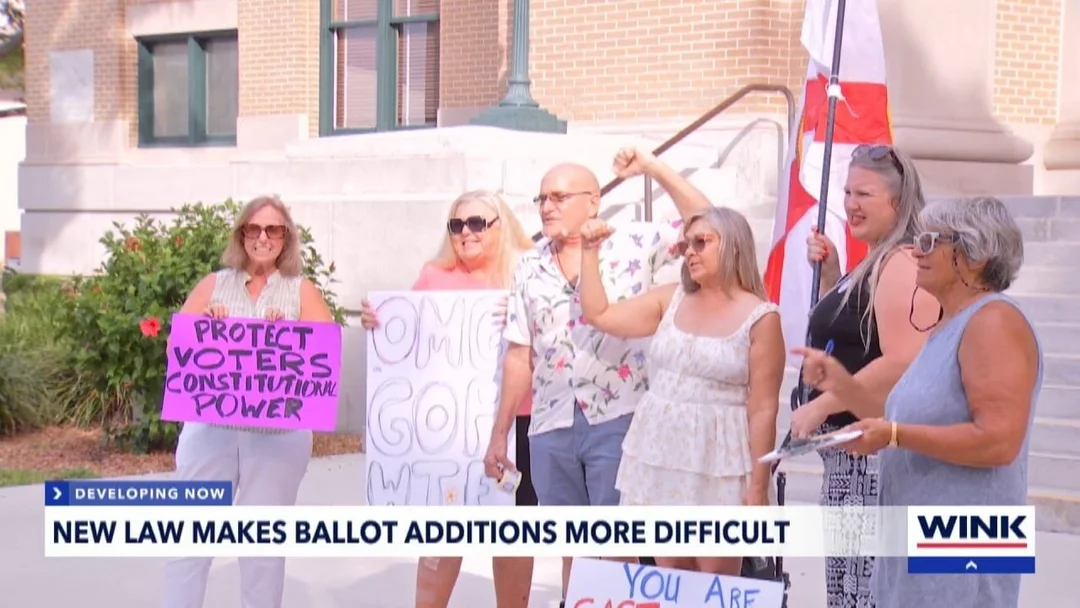
Can Florida’s Voters Still Shape Their Future? The Battle Over Ballot Access Heats Up
In a state known for its sunshine and surprises, Florida's latest political maneuvers are casting a shadow over the power of its people. A new law signed by Governor Ron DeSantis is making it tougher than ever for citizens to propose constitutional amendments, sparking widespread protests and legal challenges. This shift raises a critical question: Is democracy in the Sunshine State giving way to stricter control? As grassroots efforts collide with government restrictions, the implications could reshape how millions of Americans engage with their government.
At the heart of the controversy is a bill that imposes stringent requirements on citizen initiatives. Petition circulators must now be Florida residents, provide personal identification like a driver's license and the last four digits of their Social Security number, and submit signatures within just 10 days of collection—or face hefty fines. For instance, late submissions could result in $50 daily penalties per signature, escalating to $5,000 if deemed willful. This law, effective July 1, is seen by critics as a direct response to recent high-profile amendments, such as those on reproductive rights and recreational marijuana, which narrowly failed to pass in 2024. Supporters, like Republican state committeewoman Tara Jenner, argue it's necessary to prevent 'external entities' from hijacking the process. 'Our biggest problem is we have outside sources that make money off of what they're trying to push,' Jenner stated during a recent protest, emphasizing the need for 'guardrails' to ensure genuine citizen involvement.
Opponents, however, view it as an assault on direct democracy. Protest organizer Chris Wills, a self-described low-income Floridian, contends that the law criminalizes everyday participation. 'They are again criminalizing direct democracy... they're scaring people away,' Wills said, highlighting provisions like potential felony charges for unregistered collectors and the financial burdens that could deter volunteers. His group is racing to gather signatures to challenge the law on the next ballot. Meanwhile, the marijuana legalization group Smart & Safe Florida has escalated the fight by joining a federal lawsuit against these restrictions. In court filings, they describe the measures as 'legislative gaslighting' designed not to curb fraud, but to dismantle the initiative process entirely. Having already collected over 200,000 verified signatures for a 2026 ballot measure, they've halted some efforts due to the 10-day turnaround rule, which they argue violates First Amendment rights.

This isn't the first time Florida's government has clashed with voter will. Historical examples, like the 2014 Water and Land Conservation Act—approved by 75% of voters but later undermined by state agencies using funds for unrelated expenses—illustrate a pattern. Similarly, the 2002 class-size amendment was ignored by then-Governor Jeb Bush, showing how initiatives can be thwarted. Critics compare this to Alabama's bloated constitution, suggesting Florida risks eroding its democratic foundations by raising barriers. Governor DeSantis, who championed the law based on a report alleging petition fraud, has been accused of weaponizing state resources, including investigations into signers and misinformation campaigns. Even some Republicans decry this as overreach, though the new ban on using public funds to oppose amendments offers a small concession.
In essence, this law underscores a broader tension between elite control and public participation. By making it harder for citizens to amend their constitution—a tool used for issues like minimum wage increases and environmental protection—Florida may be stifling the very reforms that reflect its diverse populace. As debates rage on, one wonders: Will these changes fortify democracy or fracture it further?
As Florida grapples with these reforms, the bigger question remains: How can voters reclaim their voice in an era of tightening rules? This story is far from over, with potential ripple effects for national elections. We invite you to share your thoughts—do these laws protect or undermine democracy? Leave a comment below, and spread the word to keep the conversation going.